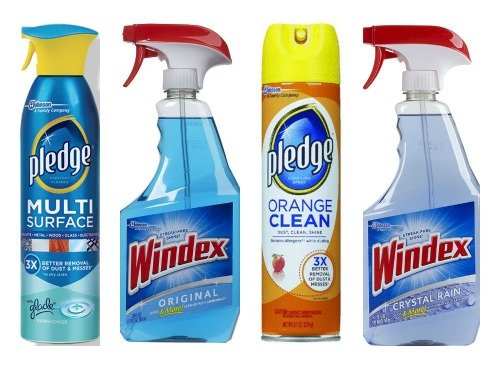
The new year brings all sorts of resolutions and promises, and one of the most popular is to get things clean and in order. People often ask me if it’s obsessive or neurotic to enjoy cleaning, and I have good news for clean freaks everywhere: It’s perfectly healthy!
Cleaning your house is a tried-and-true way to gain a sense of control over your life in a visible and immediate way. Of course, there’s always room for neurosis, and it’s possible to overdo anything. A person with psychological problems might feel compelled to clean the same things over and over, knowing everything is fine. But for most of us, that’s not what cleaning is all about.
New York psychologist Vivien Wolsk, Ph.D., puts it nicely: “There’s something relaxing, even meditative, about these chores. When we clean, we have a visible impact on what we do: Something is dirty, and you make it clean.” Dr. Wolsk even goes so far as to prescribe simple household tasks as alternatives to drug therapy for depressed or anxious people. When washing windows, she tells her clients that they should imagine that their perceptions are becoming as clear as the glass. When ironing, they are told to imagine “smoothing out the wrinkles” in their lives. Cleaning won’t solve all your problems, but it can clear your mind and relieve some tension. And your shirts and windows with thank you for it.
It all boils down to immediate gratification. Many people are frustrated by problems they can’t solve: relationships, traffic and so forth. Margaret Horsfield, author of “Biting the Dust: The Joys of Housework” writes, “You can feel that you’ve accomplished something in this uncontrollable world.” It’s the same for activities such as woodwork, painting and other forms of visual construction, but the advantage of cleaning is that it’s quicker and requires no special skills. Not everyone needs carpentry, but everyone needs the toilet bowl disinfected. In the case of a person whose house a tremendous mess, think of the mental clutter this disorganization creates, not to mention the poor self-esteem and disregard for quality of life. Cleanliness is a byproduct of healthy thinking.
Mental-health professionals speculate that extreme messiness is symptomatic of low self-esteem. If you respect yourself, you want the things around you to be clean and organized. Cleanliness is a reflection of one’s inner sense that, “I like my life and I want it to be as enjoyable and efficient as I can make it.” When you like yourself, you don’t want obstacles to distract you, like losing your keys in the mess or wondering what’s moving beneath last week’s pizza box.
I hear complaints from parents about how messy their kids’ rooms are. Though this could be indicative of low self-esteem and even depression, it probably just stems from laziness or immaturity. They don’t yet value their property the way they will when they have to pay for it. For the most part I suggest that parents simply shut the door, unless things are so bad that your HOA brings in a Hazmat team.
Some years ago, I knew someone who cut hair for a living. As a favor, he would sometimes go to a friend’s house to cut his hair for him. His friend was a bright and articulate man, but his apartment was unimaginably filthy. There was trash everywhere, with prehistoric newspapers and abandoned plates of food piled high. Here comes the part I’ll never forget: At one point during the visit, a particularly feisty roach landed squarely on the hair cutter’s head. Yuck! His friend thought nothing of it and laughed it off. Needless to say, that was his last in-home grooming session.
This filth was certainly an extreme example of what happens when you don’t feel you deserve any better. Keeping things clean might be the beginning of a cure for what emotionally ails you. Windex and Pledge are a lot cheaper than Xanax and Prozac, and they just might help you feel a little better about yourself, your home and your things.
So start the new year right! Dust your stuff: It’s good for you.
You can follow Dr. Hurd on Facebook. Search under “Michael Hurd” (Rehoboth Beach DE). Get up-to-the-minute postings, recommended articles and links, and engage in back-and-forth discussion with Dr. Hurd on topics of interest. Also follow Dr. Hurd on Twitter at @MichaelJHurd1
